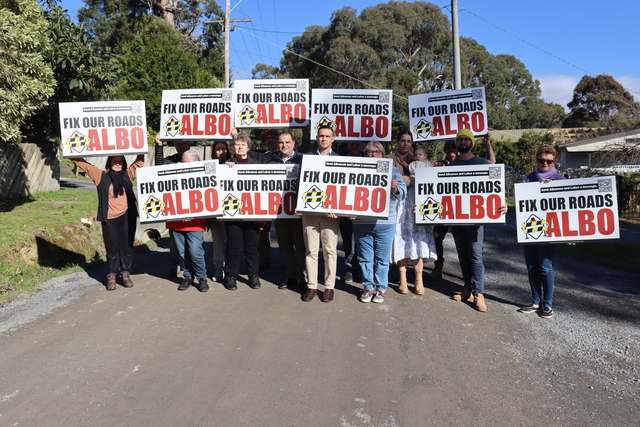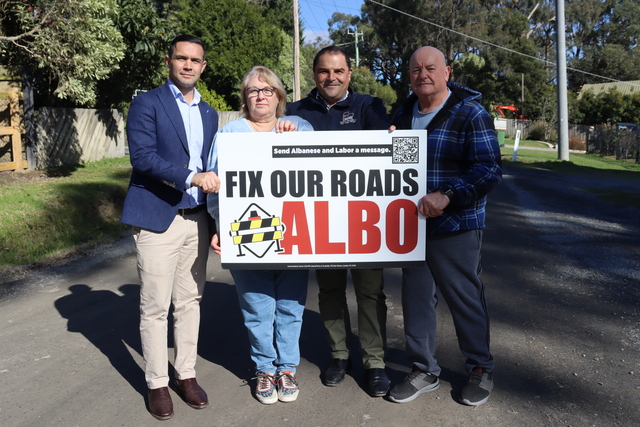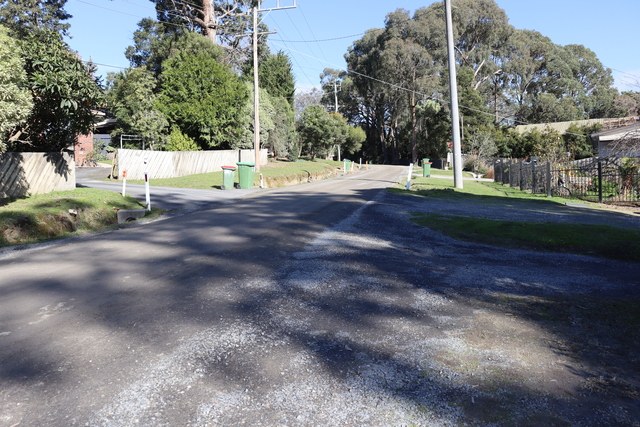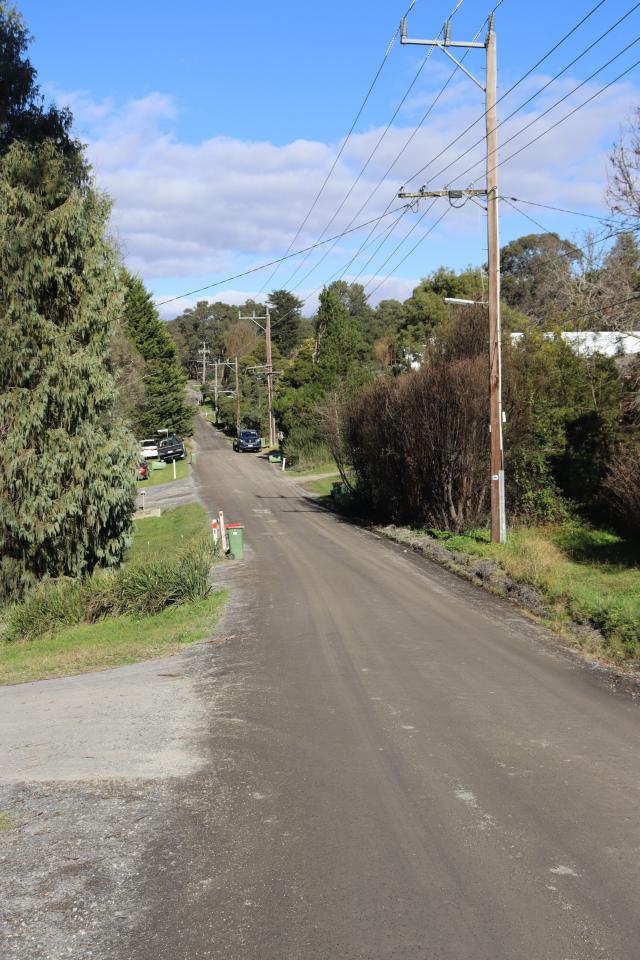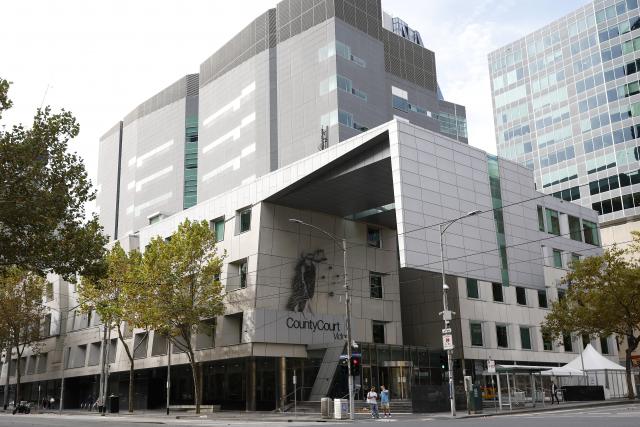With funding cuts to the road sealing program across the Yarra Ranges, the state of dirt roads throughout the shire remains a sore point for residents.
For people living along The Crescent and Marshall Street in Mount Evelyn, who had been moved up the priority list for road sealing, the disappointment continues two years after the cuts.
The Crescent resident of 30 years Gayle Schilke has been championing advocacy with Yarra Ranges Council and local members on behalf of a collective of residents calling for roads to be sealed.
Ms Schilke said roads like The Crescent and Marshall Street are in a “unique” position because they form a cut through to factories on Clancys Road, the school and childcare centre on Monbulk Road and access for cars into the rest of the estate.
“I’m doing this for all the dirt roads, there’s others that have got their needs as well but we have a few unique needs like we’ve got a special needs building and a DHS building. Marshall Street has a bakery and this just increases the safety need,” she said.
“And we have walkers, especially since Covid, because the Warby Trail is just at the end.”
With high traffic movement at the moment, of both cars and trucks, Ms Schilke said she understands a made road might increase traffic use but “it needs to be safe” for drivers and walkers alike.
Having been sent a letter confirming the works would be completed within the year, Ms Schilke said it was “heartbreaking” when the news of the funding cuts were announced in October 2022.
This was a common sentiment expressed by residents across the Yarra Ranges who had expected their road to be sealed.
It has led to a number of petitions, like that for Beenak Road Yellingbo calling for special charge schemes to be explored, being submitted to Yarra Ranges Council.
Seeking action and funding for previously allocated road sealing projects, residents from Mount Evelyn joined shadow assistant minister for infrastructure and transport Tony Pasin and Casey MP Aaron Violi to launch a national road survey.
“What we’re doing is asking the community to express that frustration via this national survey to tell us where the national land transport network is in its poorest condition,” Mr Pasin said.
Launching the campaign in the Yarra Ranges, Mr Pasin said was intentional given the extent of the project cuts.
“The case here in the Yarra Ranges is one of the strongest around the country. This project was fully funded. It was rolling out successfully. It was on time, it was on budget and yet funding for it was cut unilaterally,” he said.
“People in this community are living in a peri-urban environment with a road network that we wouldn’t accept in remote or super remote parts of Australia.”
Casey MP Aaron Violi said the Roads of Community 10-year project was one that “ticked so many boxes” and had bipartisan support when the funding was allocated in 2019 under the Coalition government.
“The department has confirmed in Senate estimates that sealing these roads improves safety for our community. It is a project that the community is also contributing money for so it’s making the taxpayer dollar go further,” he said.
“It reduces the ongoing maintenance costs of Yarra Ranges Council so they can invest that in other infrastructure or bring rates down which is so crucial in a cost of living crisis.
“So it achieves everything, it ticks every box and it improves the lives of residents and improves their health as well.”
Ms Schilke said dust-induced asthma and breathing difficulty was not uncommon for residents on dirt roads, an impact people on her road try to mitigate by planting hedges.
“People have examples of kids on medication because of asthma because of the dust,” she said.
“When my children were young, my son had asthma quite bad, but once we pulled up the carpet, he didn’t need medications anymore and he’d just have a puffer there if he needed it, but it was because of the dust in the carpet.”
In the 30 years she’s lived at The Crescent the condition of the road has improved immensely but the final step is the sealing.
“When we moved here this road didn’t get a grade, we got nothing, you could barely get up it. And when we first moved here our house was getting flooded, our backyard flooded.”
Being a natural watercourse because the Stringybark Creek runs through the back of some properties, Ms Schilke said the addition of open drains helped but caused a secondary issue of cars backing into them or getting stuck because of the narrow road.
The Coalition’s national road survey invites residents to submit any and all road infrastructure projects requiring attention, whether it is an intersection upgrade, congestion improvements or a new turning lane.
Mr Violi said the hope of the campaign is to prove the importance of infrastructure in the electorate of Casey and more broadly, the country.
“Investing in infrastructure drives productivity and improves community safety, and improves the lives of community members,” he said.
“It’s not acceptable to cut infrastructure spending at a time when productivity is at negative 5.2 per cent.”
A Department of Infrastructure, Transport, Regional Development, Communications and the Arts spokesperson said the transport infrastructure pipeline remains steady, with no cuts to the $120 billion allocated.
“As announced at the 2024-25 Budget, the Australian Government’s total commitment in Victoria under the Infrastructure Investment Program over the next 10 years is $19.2 billion, including $17 billion for major road and rail projects and $2.2 billion for smaller projects through programs such as Roads to Recovery and the Black Spot Program,” they said.
The department confirmed the most recent Roads to Recovery allocation for Yarra Ranges Council was $18.8 million, an increase of $8.1 million.
Funding will allow the council to select road projects that will deliver on local priorities throughout a five year period.
This was on top of the remaining $47.7 million that survived the funding allocation cut for the Roads for Community project.
“We will continue to work with the Victorian Government and local councils to deliver the highest priority transport infrastructure projects, making it easier to get around our cities and suburbs and unlocking the potential of our towns and regions.”
To complete the survey, go to www.research.net/r/2HRHBV9

